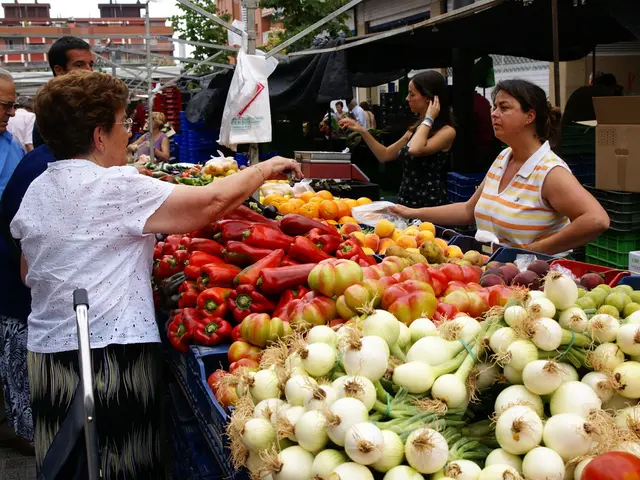Urge from China's Li Qiang to strengthen economic bonds with ASEAN and Gulf leaders via increased collaborations with Beijing.
Chinese Premier Li Qiang called for enhanced cooperation between ASEAN and Gulf states in a summit held in Kuala Lumpur, Malaysia, on Tuesday. The aim was to establish a dynamic economic circle, foster growth for all participating nations, and contribute to global development.
In his opening remarks, Li emphasized the need to strengthen partnerships across key sectors such as infrastructure, market regulations, energy, agriculture, artificial intelligence, digital economy, green and low-carbon development, and people-to-people exchanges. The leaders pledged to increase cooperation in areas like connectivity, trade, industry, agriculture, finance, and digital economy to promote inclusive and sustainable development and build a future shared among nations.
Li Qiang also encouraged the development of a large shared market,with more efficient resource, technology, and talent flow, alongside greater freedom for trade and investment. To achieve this, China proposed deepening strategic alignment and coordinating macroeconomic policies with ASEAN and GCC countries, based on mutual respect and equal treatment.
The Gulf Cooperation Council (GCC) comprises Bahrain, Kuwait, Saudi Arabia, Oman, Qatar, and the United Arab Emirates, while ASEAN includes Brunei, Cambodia, Indonesia, Laos, Malaysia, Myanmar, the Philippines, Singapore, Thailand, and Vietnam.
The summit, which marks the launch of ensified trilateral cooperation, aims to advance regional and inter-regional collaboration, deepen Belt and Road cooperation, and coordinate responses to global challenges within multilateral frameworks, like the United Nations, towards establishing a more just and equitable global governance system.
Diplomacy was emphasized as a means to strengthen partnerships between China, ASEAN, and GCC countries, particularly in establishing a large shared market with greater freedom for trade and investment. The leaders pledged to increase cooperation in areas such as finance, digital economy, and trade to foster growth and promote sustainable development.




